In the intricate dance of human interaction, there exists a subtle yet potent technique that can forge deep bonds, dissolve conflicts, and create a profound sense of connection – it’s called personality mirroring.
Imagine having a superpower that allows you to effortlessly understand and connect with others on a profound level. Let’s explore this superpower by delving into the meaning and magic of personality mirroring, uncover its power, and equip you with the skills to master this art, enriching your relationships and communication in the process.
What is Personality Mirroring?
Personality mirroring is the art of reflecting back the thoughts, feelings, and behaviors of another person. It’s like becoming a social chameleon, adapting your communication style and demeanor to align with the personality of the individual you’re interacting with.
This technique isn’t about mimicry or manipulation; it’s about creating a harmonious connection.
Imagine you’re talking to a friend who’s excitedly discussing a recent accomplishment. Instead of shifting the focus to your own achievements, you mirror their enthusiasm by celebrating their success with genuine joy.
Related: The Mirror Effect Of An Empath and Why Empaths Are Hated

When Personality Mirroring is Positive Vs. When it’s Manipulative
Positive personality mirroring fosters empathy and connection, while manipulative mirroring exploits and deceives, often for personal gain or manipulation.
Positive Personality Mirroring
Positive personality mirroring refers to the act of reflecting and emulating positive traits, behaviors, and attitudes in interpersonal interactions. When practicing positive personality mirroring, individuals aim to display qualities such as empathy, kindness, enthusiasm, and optimism.
It involves actively listening to others, validating their emotions, and responding in a supportive and uplifting manner. Positive personality mirroring fosters healthy relationships, builds trust, and promotes a positive social environment.
Negative Personality Mirroring
Negative personality mirroring involves imitating negative traits, behaviors, or attitudes in interpersonal interactions. This can include displaying hostility, cynicism, pessimism, and selfishness.
Negative personality mirroring often leads to strained relationships, conflict, and a toxic social atmosphere. It can perpetuate a cycle of negativity and hinder personal growth and development.
Negative personality mirroring can also be a manipulative tactic, involving mimicking someone’s negative traits to gain control or manipulate a situation, often causing harm or discomfort.
Choosing to engage in positive personality mirroring contributes to a harmonious and constructive social environment, while negative personality mirroring diminishes the quality of relationships and overall well-being.
It is important to be mindful of our interactions and consciously strive to mirror positive qualities to foster healthy connections with others.
What Type of People Engage in Personality Mirroring?
Personality mirroring can be observed in various individuals, albeit to varying degrees. Here are a few examples of people who may engage in personality mirroring:
1. Social Chameleons
Some individuals possess a natural inclination to adapt their behavior and personality based on the people they interact with. They may mirror the attitudes, interests, and mannerisms of others as a way to fit in or gain acceptance.
2. Empathetic Individuals
People with a high level of empathy often engage in personality mirroring as a means to connect with others on a deeper emotional level. They intuitively mirror the emotions and experiences of those around them, displaying understanding and support.
3. Marketing Experts and Influencers
Professionals in sales, marketing, or leadership roles often employ personality mirroring techniques as a means to build rapport and influence others.
By mirroring the communication style, preferences, and values of their audience, they can establish trust and create a sense of familiarity.
4. Individuals Seeking Validation
Some people engage in personality mirroring as a way to seek validation or approval from others. They may adopt certain behaviors or attitudes to fit societal expectations or gain recognition, often at the expense of their authentic selves.
It’s important to note that personality mirroring is a complex and multifaceted behavior that can be influenced by various factors, such as social context, personal goals, and individual traits.
Elements of Personality Mirroring
Here are some aspects of this phenomenon that we need to consider –
1. Listen Empathetcially to Mirror Effectively
At the heart of personality mirroring psychology lies empathetic listening. It involves not only hearing the words but also tuning into the emotions and underlying sentiments. When you actively listen, you gain insight into someone’s perspective, making them feel valued and understood.
Your colleague shares their concerns about an upcoming project. Instead of immediately offering solutions, you mirror their anxiety by saying, “I can see why you’re feeling stressed about this; it’s a challenging task.”
2. Mirroring to Build Trust
When you mirror someone’s personality, you create a bridge of trust and rapport. People naturally gravitate towards those who validate their experiences and emotions. This strengthens your bonds and lays the foundation for deeper, more meaningful relationships.
Your new neighbor is reserved and cautious. By mirroring their reserved demeanor during your initial interactions, you establish trust and make them feel comfortable around you.
3. Avoid Over-Mirroring
While personality mirroring is a powerful tool, it’s essential to strike a balance. Over-mirroring, where you lose your authentic self in the process, can lead to inauthentic connections. Remember, the goal is to connect, not to become a mirror image of others.
If you’re an introvert, don’t over-mirror an extroverted friend to the point of exhaustion. Instead, find a balance between their energy and your natural disposition.
4. Mirror to Enhance Communication
Personality mirroring enhances communication by breaking down barriers and facilitating understanding. It’s particularly valuable in situations involving conflict resolution. When you mirror another person’s perspective, you pave the way for constructive dialogue.
In a heated argument with your partner, you mirror their frustration by saying, “I can sense how upset this situation has made you. Let’s talk and find a solution together.”
Related: Narcissist Mirroring: How Narcissist Manipulates You Into Loving Them
5. Adapting to Different Scenarios
Personality mirroring psychology is a versatile tool that can be applied to various aspects of life. Whether you’re networking at a professional event, consoling a friend in need, or negotiating with a colleague, this technique can be your guiding star.
During a job interview, you mirror the interviewer’s professionalism and enthusiasm, demonstrating that you’re a great fit for the company culture.
6. Recognizing the Limits
While personality mirroring is a potent social skill, it’s crucial to recognize its limits. You cannot always mirror every personality or situation effectively. Some people may have challenging or toxic traits that aren’t worth mirroring.
If someone exhibits harmful behavior or toxic attitudes, it’s essential to prioritize your well-being and avoid mirroring their negativity.
7. The Authentic You
In the midst of personality mirroring, it’s vital to remain true to yourself. Authenticity is the cornerstone of meaningful connections. Mirroring should complement your authenticity, not replace it.
Even when mirroring someone’s excitement, you don’t pretend to be someone you’re not. Your genuine enthusiasm shines through.
8. Practice Makes Perfect
Becoming proficient in personality mirroring takes practice. Start by observing the people around you and honing your listening skills. Over time, you’ll develop an intuitive ability to connect with others effortlessly.
Begin by mirroring the body language and tone of voice of those you interact with regularly. As you gain confidence, you can venture into mirroring deeper emotions and perspectives.
Takeaway
In a world where genuine connections can be rare and precious, mastering the art of personality mirroring can be your passport to deeper, more fulfilling relationships. By understanding and embracing the essence of this technique, you’ll not only enrich your social interactions but also empower yourself to navigate the intricate tapestry of human connections with grace and empathy.
So, why wait? Start your journey toward becoming a master of personality mirroring today and unlock the magic of meaningful connections.
Related: How People Subconsciously Take On Attributes Of Their Favorite Fictional Characters
Frequently Asked Questions (FAQs):
Is mirroring someone’s personality a disorder?
Mirroring someone’s personality is not a disorder; it’s a social skill used for building rapport and enhancing communication.
Why do people mirror your personality?
People mirror others’ personalities to establish rapport, build trust, improve communication, and create a sense of connection in social interactions. Mirroring fosters understanding and empathy.
How do you know if someone is mirroring your personality?
Observe if they mimic your body language, tone, or emotions; use similar phrases; or respond empathetically to your experiences – indicating mirroring behavior.
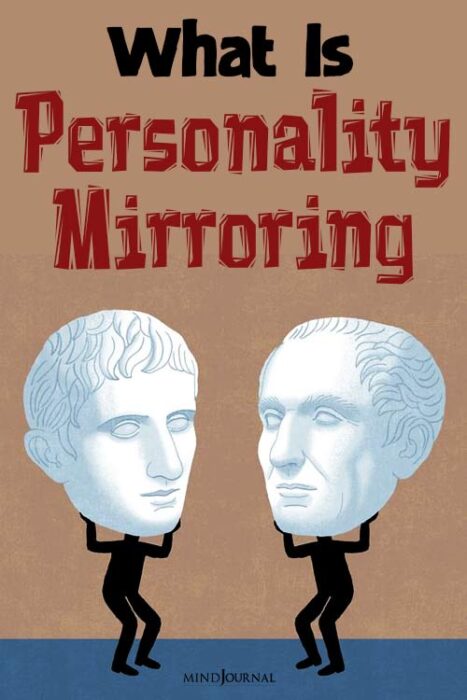
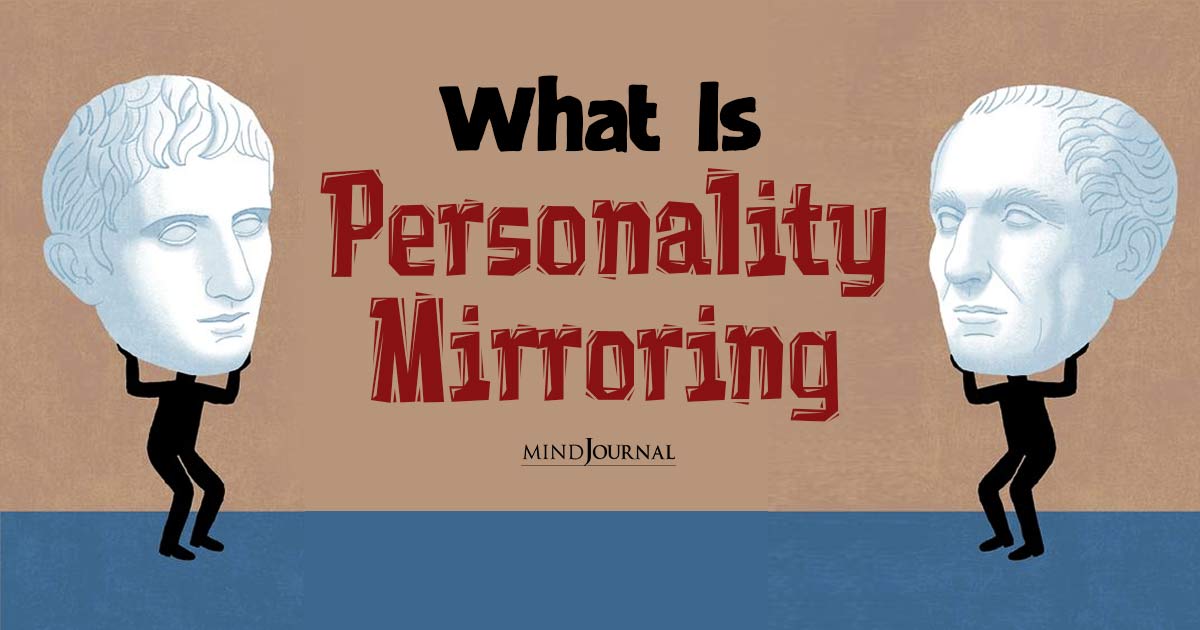
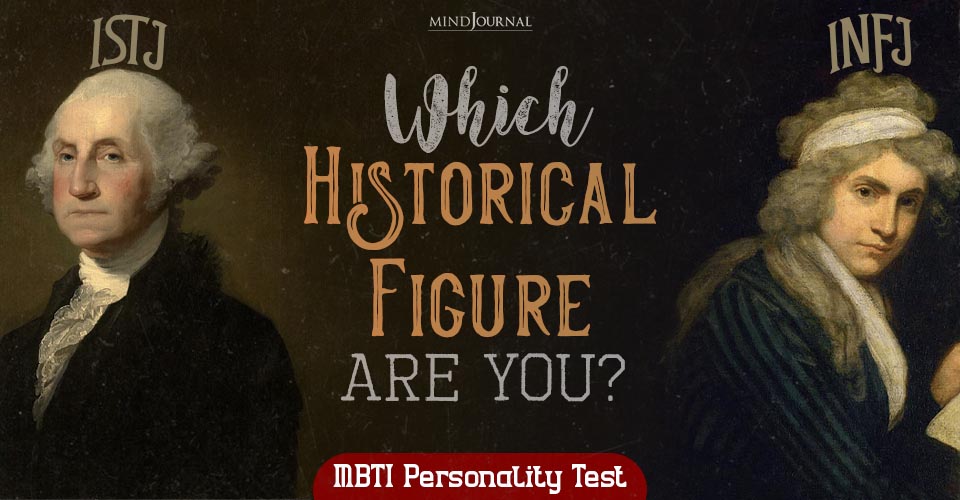
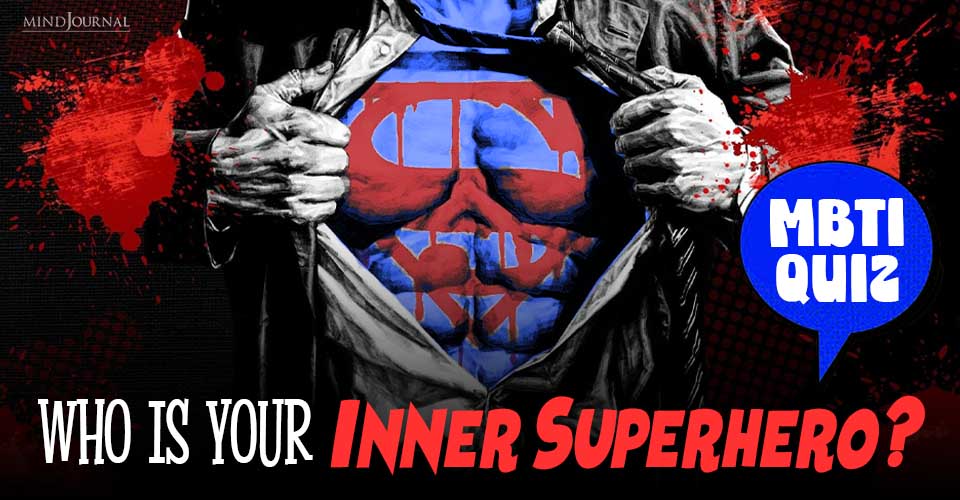
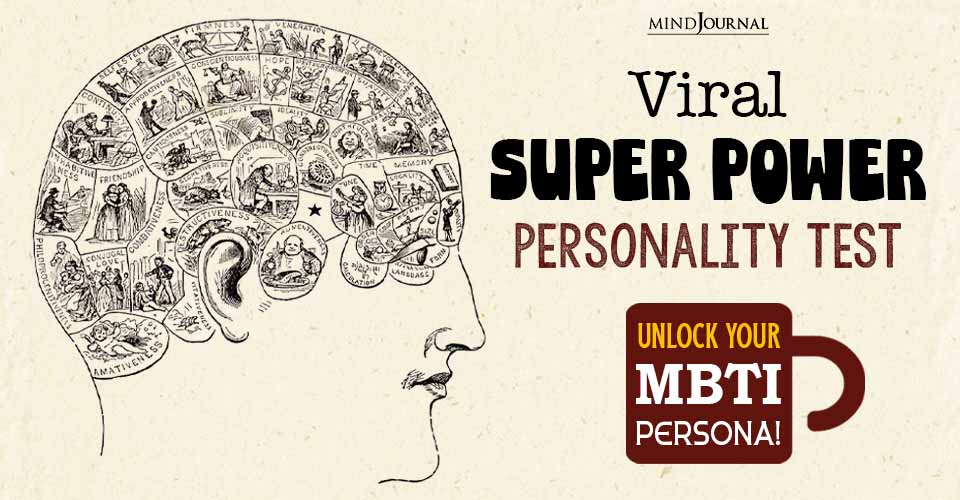

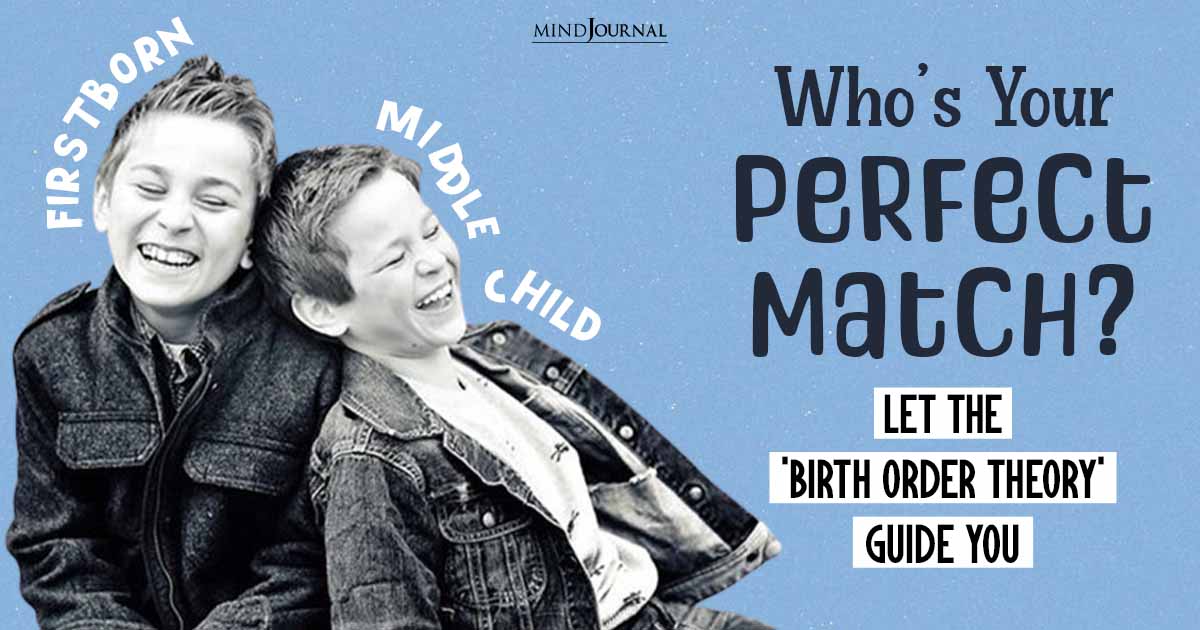


Leave a Reply
You must be logged in to post a comment.